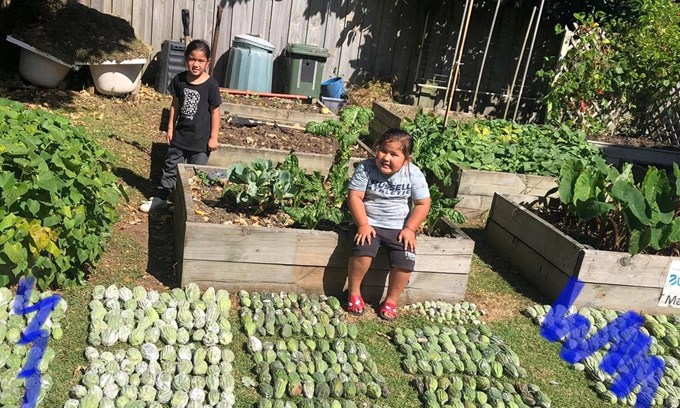Many people have encountered this plant without realising it is an infamous weed that poses a significant threat to our native plants.
Thats why schools, and for the first time, community groups, are being urged to unite and sign up for the annual Pest Free South Auckland Moth Plant Competition and help remove moth plants from the local area.
The Pest Free South Auckland supports Auckland Council’s regional Pest-Free Auckland initiative to protect biodiversity and restore council-managed land, and runs from 4 March to 10 May.
The chairs of the Ōtara-Papatoetoe and Māngere-Ōtāhuhu local boards agree that this is a popular and enjoyable way to involve the younger generation. It serves as an excellent avenue to connect with the youth.
“It is uplifting to witness our tamariki, their schools, their kaiako (teachers), and parents actively engage and participate. We’re always blown away with the genuine care they have for the environment. It’s nice to see this competition provide them with a chance to stay active, gain knowledge and really enjoy themselves. Moreover, the opportunity to win prizes of between $150 to $500 adds an element of excitement and fun to the experience,” says Ōtara-Papatoetoe local board chair Apulu Reece Autagavaia.
Māngere-Ōtāhuhu local board chair Tauanu’u Nick Bakulich adds, “Local boards have an important role to play in leading and supporting Auckland’s response to the environment, and our community have told us we need to support and take action to protect and preserve our environment.”
The initiative encourages working together across the landscape and seeks to not enable schools and community groups to get involved but also to celebrate community success.
Last year, over 30 schools participated in this competition with local ECE Nga Taonga Aroha Early Childhood Centre taking out the top spot, collecting a whopping 22,700 seed pods.
Apulu says, “With initiatives like Pest Free South Auckland, by partnering with schools, businesses, environmental groups and community volunteers on things like pest control and habitat improvement to name a few, we are all doing our part to protect biodiversity and restore the natural habitat.”
Bakulich concludes, “What we do today to keep our environment healthy is critical for a healthy future and every one of our students and community groups taking part, are a part of this healthy future. We don’t have lots of money so being able to work smarter with our partners makes it easier to achieve better environmental outcomes.”
Each Moth Plant pod contains approximately 800 seeds, and with this competition a target of collecting 100,000 pods will prevent an estimated 80 million seeds from germinating. The pods are hot composted, rather than sent to landfill, to reduce waste sent to landfill.
Four Auckland local boards, Ōtara-Papatoetoe, Manurewa, Papakura and Māngere-Ōtāhuhu help Pest Free with funding for the annual competition.
Categories include:
- Preschool
- Open
- Top primary / intermediate / secondary teams
- Thickest vine prize
- Most small vines pulled by the roots prize
- Whole school prize.
To register your team, contact PFSA@otarawaterways.org.nz. Competition closes 10 May, the awards ceremony taking place in June 2024 where the top performers in each category will be recognised and rewarded.
What is a moth plant?
Moth plant is a vigorous evergreen climbing vine with arrow-head shaped leaves, dark green on top and grey-green below. The flowers grow in creamy white to pink clusters, present from December to May.
Why is it a problem?
Moth plant can become dominant in many situations and out-competes and replace native plants. It smothers and strangles whatever it climbs on. The seeds are poisonous, and the milky-white sap is very sticky, and insects can become trapped.
When removing this weed from your backyard, remember to wear protective gloves and remove it from the roots along with any pods and vines. Put them in a secure plastic bag and send them to the landfill via your regular council rubbish bins or through a community weed bin in your area.
Stay up to date
Want to stay up to date with all the latest news from your area? Sign up here for Ōtara-Papatoetoe or for Māngere-Ōtāhuhu.


